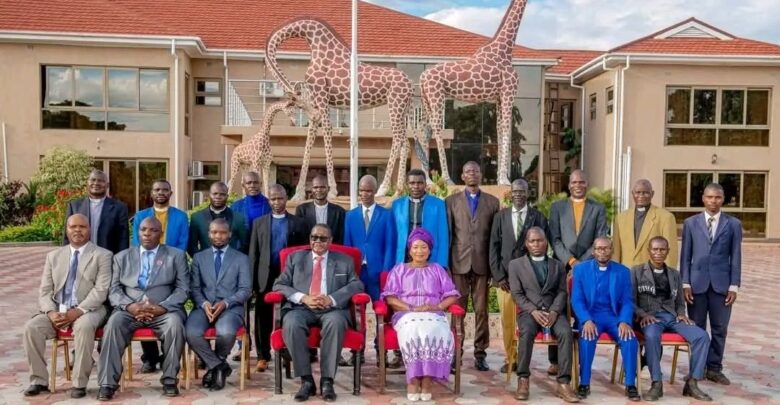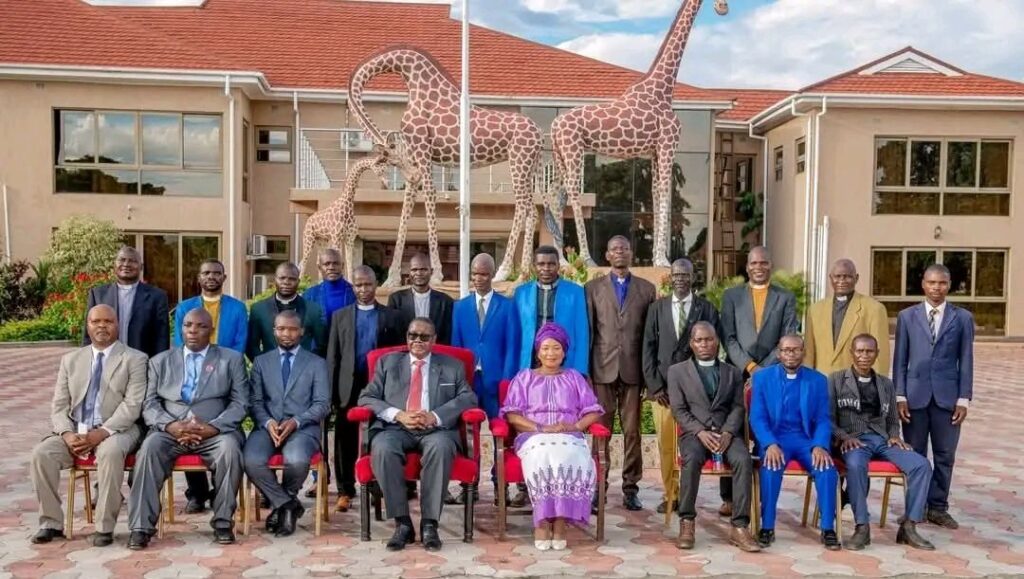Columns
Malawi ‘s disgraceful Synods

By Jones Gadama
The recent actions of the leadership of the Blantyre and Nkhoma Synods in Malawi have revealed a deeply troubling and disgraceful stance that is not only unchristian but also profoundly hypocritical. The condemnation of reverends who have chosen to fulfill their pastoral duties by engaging with individuals from all walks of life, including former President Mutharika, is a reflection of a devilish mindset that prioritizes political allegiance over the core tenets of Christianity. This behavior is not merely a misstep; it is a demonic affront to the very essence of what it means to be a servant of God.
In a world that is increasingly polarized, the role of a reverend is to bridge divides, to offer solace and guidance to all, regardless of their political affiliations or past actions. The vows taken by these clerics are not conditional; they are a commitment to serve humanity in its entirety, to extend the hand of fellowship to those in need, and to embody the love and grace that Christ exemplified. By condemning these reverends for their actions, the leadership of the Blantyre and Nkhoma Synods has not only betrayed the trust of their congregations but has also undermined the very foundation of Christian fellowship.

The decision to pray with former President Mutharika should not be viewed through the lens of political loyalty but rather as an act of compassion and understanding. It is a recognition that every individual, regardless of their past, is deserving of prayer and support. To shun these reverends for their willingness to engage with a former leader is to adopt a demonic posture that seeks to divide rather than unite. It is a stance that echoes the very worst of human nature, one that seeks to cast judgment rather than extend grace.
The leadership of these Synods has allowed themselves to be ensnared by the toxic politics that plague our nation. In doing so, they have abandoned their sacred duty to lead with love and humility. Their actions are reminiscent of the Pharisees, who were more concerned with the letter of the law than with the spirit of compassion. This devilish conduct is a betrayal not only of their clerics but also of the congregations that look to them for guidance and support. It is a stark reminder that even within the church, there can be a demonic influence that seeks to sow discord and division.
The reverends who have been condemned for their actions are not the ones who should be held accountable; rather, it is the leadership of the Synods that must face scrutiny for their failure to embody the principles of love, forgiveness, and acceptance. Their actions have created an environment of fear and intimidation, where clerics are afraid to fulfill their pastoral duties for fear of retribution. This is not the hallmark of a healthy church; it is a sign of a demonic stronghold that seeks to silence the voices of those who dare to act in accordance with their faith.
It is essential to recognize that the church is called to be a sanctuary for all, a place where individuals can come together in fellowship, regardless of their past or present circumstances. The leadership of the Blantyre and Nkhoma Synods has failed to uphold this sacred calling. Instead of fostering an environment of love and acceptance, they have chosen to wield their authority as a weapon, condemning those who dare to step outside the narrow confines of their political ideology. This is a disgraceful betrayal of the very principles that underpin the Christian faith.
The demonic influence that has taken root within these Synods is evident in the way they have chosen to prioritize political expediency over spiritual integrity. By condemning their own reverends, they have sent a clear message that loyalty to the Synod leadership is more important than loyalty to Christ. This is a dangerous precedent that undermines the credibility of the church and erodes the trust of the congregations they serve. It is a devilish tactic that seeks to maintain control through fear and intimidation, rather than through love and understanding.
Furthermore, the actions of the Synod leadership have far-reaching implications for the church as a whole. When reverends are punished for their willingness to engage with individuals from all walks of life, it sends a chilling message to the entire congregation. It suggests that the church is not a place of refuge but rather a battleground where political allegiances take precedence over spiritual growth. This is a demonic distortion of the church’s mission, one that threatens to alienate those who are seeking a genuine connection with God.
The leadership of the Blantyre and Nkhoma Synods must be held accountable for their disgraceful conduct. They have a responsibility to lead with integrity, to embody the love of Christ, and to create an environment where all individuals feel welcome and valued. Instead, they have chosen to align themselves with a demonic agenda that seeks to divide and conquer. This is a betrayal of their sacred calling, and it is time for the church to rise up and demand accountability from those who have failed to uphold the principles of love and acceptance.
The actions of the Blantyre and Nkhoma Synods represent a disgraceful departure from the core tenets of Christianity. Their condemnation of reverends who have chosen to fulfill their pastoral duties is a reflection of a devilish mindset that prioritizes political allegiance over spiritual integrity. It is a demonic affront to the very essence of what it means to be a servant of God. The church must reject this toxic influence and demand accountability from its leaders. It is time to reclaim the sacred calling of the church and to stand firm in the face of demonic forces that seek to undermine the message of love and grace that lies at the heart of the Christian faith.






